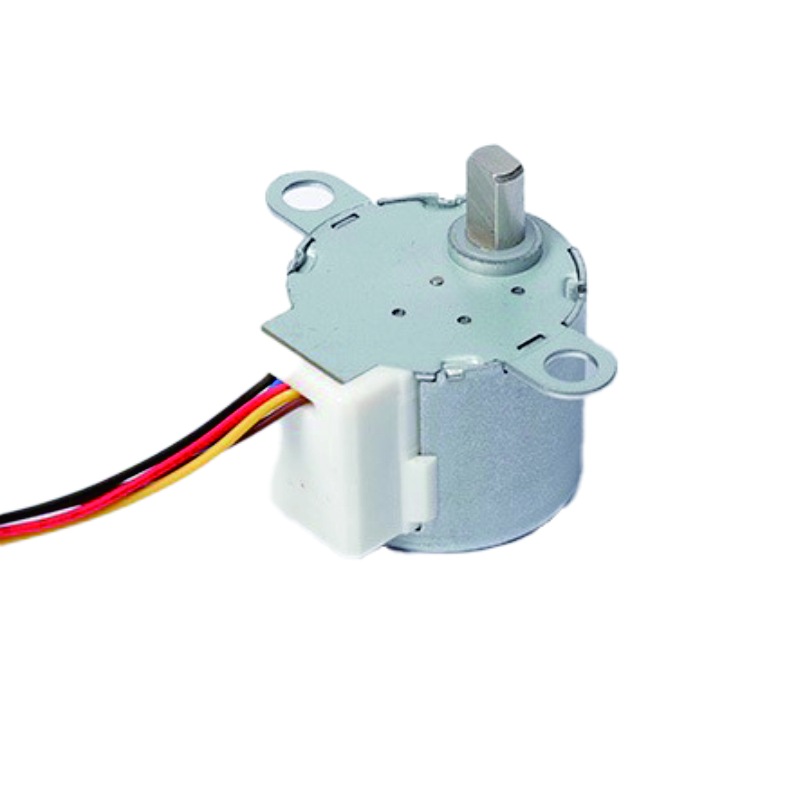Introduction to Motor Types
The Importance of Motor Selection
Choosing the right motor is crucial in various industries, impacting machinery efficiency and performance. Two common types are the step motor 12v and the DC motor, each with unique characteristics and applications. Understanding their differences helps in selecting the optimal motor for specific needs, whether in automotive, manufacturing, or electronics.
Basic Principles of Stepper Motors
Understanding Stepper Motor Mechanics
A stepper motor is an electromechanical device that converts electrical pulses into discrete mechanical movements. Each pulse moves the motor a fixed step, allowing for precise control of angular position without feedback. A typical stepper motor has 200 steps per revolution, equating to 1.8 degrees per step. This precision is why stepper motors are favored in applications requiring exact positioning, such as CNC machines and 3D printers.
Stepper Motor Construction
Stepper motors generally consist of a rotor, stator, and several coils of wire forming the motor phases. The rotor's magnetic field interacts with the sequentially energized stator coils, causing the rotor to move in steps. The simplicity of this design allows for durable construction, making it a popular choice among manufacturers and suppliers aiming for long-lasting motor solutions.
Basic Principles of DC Motors
Functionality of DC Motors
DC motors function by converting direct current electrical energy into mechanical energy through electromagnetic interactions. They feature a constant magnetic field created either by permanent magnets or electromagnetic windings. When voltage is applied, the armature rotates, offering continuous rotational motion, suitable for applications like fans, conveyors, and pumps.
DC Motor Components
A typical DC motor comprises a stator providing the magnetic field and a rotor which rotates within that field. Brushes and a commutator facilitate current flow through the armature coils, inducing rotation. The simplicity and reliability of DC motors make them a staple in industries in China and globally.
Control Mechanisms of Stepper Motors
Precision in Motion Control
Stepper motors are known for their precise motion control, driven by input pulses. The motor's position is determined by the number of pulses sent, allowing incremental movement. This open-loop control system eliminates the need for complex feedback systems.
Advantages in Automation
The ability to hold a position accurately without feedback makes stepper motors ideal for automation systems, where precision and repeatability are crucial. This capability is particularly beneficial in robotics and automated assembly lines, where efficient and reliable motor control is essential.
Control Mechanisms of DC Motors
Speed Control and Efficiency
DC motors offer straightforward speed control via voltage variation, a significant advantage in applications requiring variable speed. The efficiency of a DC motor is enhanced by its ability to provide consistent speed and torque under varying loads, making it indispensable in manufacturing processes.
Feedback Systems and Control
Although DC motors do not inherently provide position control, they can be coupled with feedback systems like encoders or tachometers for closed-loop control. This integration allows manufacturers and suppliers to offer solutions for applications requiring precise speed and position control.
Torque Characteristics of Stepper Motors
Torque Production and Limitations
Stepper motors provide high torque at low speeds, which decreases significantly as speed increases. This characteristic makes them ideal for low-speed, high-precision applications. However, their torque limitation at higher speeds must be considered during the motor selection process.
Holding Torque Benefits
One distinct advantage of stepper motors is their holding torque, allowing the motor to maintain a position when not actively moving. This is critical in applications where load holding is necessary, adding value to automated systems in China and internationally.
Torque Characteristics of DC Motors
Consistent Torque Delivery
DC motors provide consistent torque over a wide speed range, an advantage where continuous power and efficiency are required. This characteristic makes DC motors suitable for high-speed applications where stepper motors might falter.
Motor Efficiency Considerations
The efficiency of DC motors, often around 70-80%, varies with load and design. Understanding these parameters is crucial for manufacturers and suppliers looking to optimize performance and efficiency in their motor-driven applications.
Applications of Stepper Motors
Industries Benefiting from Stepper Motors
Stepper motors are indispensable in CNC machinery, 3D printing, and automotive systems requiring precise control. Their ability to perform small, precise movements is crucial in sectors like electronics manufacturing, ensuring precision and quality.
China's Role in Stepper Motor Production
China remains a major supplier of stepper motors, with many manufacturers offering high-quality and cost-effective solutions. The country's contribution ensures a steady supply of these motors to meet global industrial demands.
Applications of DC Motors
DC Motors in Everyday Use
DC motors are prevalent in household appliances, automotive applications, and industrial machinery. Their versatility and cost-effectiveness make them a practical choice for continuous operation applications, from small gadgets to large-scale industrial machines.
Manufacturers and Suppliers of DC Motors
Globally, China stands out in the DC motor market, providing reliable and affordable options to industries worldwide. This prominence highlights China's pivotal role in the global supply chain, meeting diverse industrial requirements with innovative solutions.
Comparative Analysis and Conclusion
Choosing Between Stepper and DC Motors
Choosing between a 12V stepper motor and a DC motor depends on specific application needs, such as precision, speed, and torque. Stepper motors are ideal for precision positioning, while DC motors excel in speed and power applications.
Final Thoughts for Manufacturers
Manufacturers and suppliers must consider these factors when selecting motors, ensuring optimal performance in their products. By understanding each motor's strengths and limitations, industries can make informed decisions for enhanced efficiency and innovation.
Hanlang Technology Provide Solutions
Hanlang Technology offers advanced motor solutions, specializing in both stepper and DC motors to meet diverse industrial needs. With a focus on innovation, our products are designed to enhance performance, efficiency, and reliability. As a leading supplier, we ensure high-quality motors at competitive prices, catering to a wide range of industrial applications. Our expertise enables us to provide customized solutions, supporting industries worldwide with the technology and service they require to succeed. Choose Hanlang Technology for your motor needs and experience excellence in motion control.




